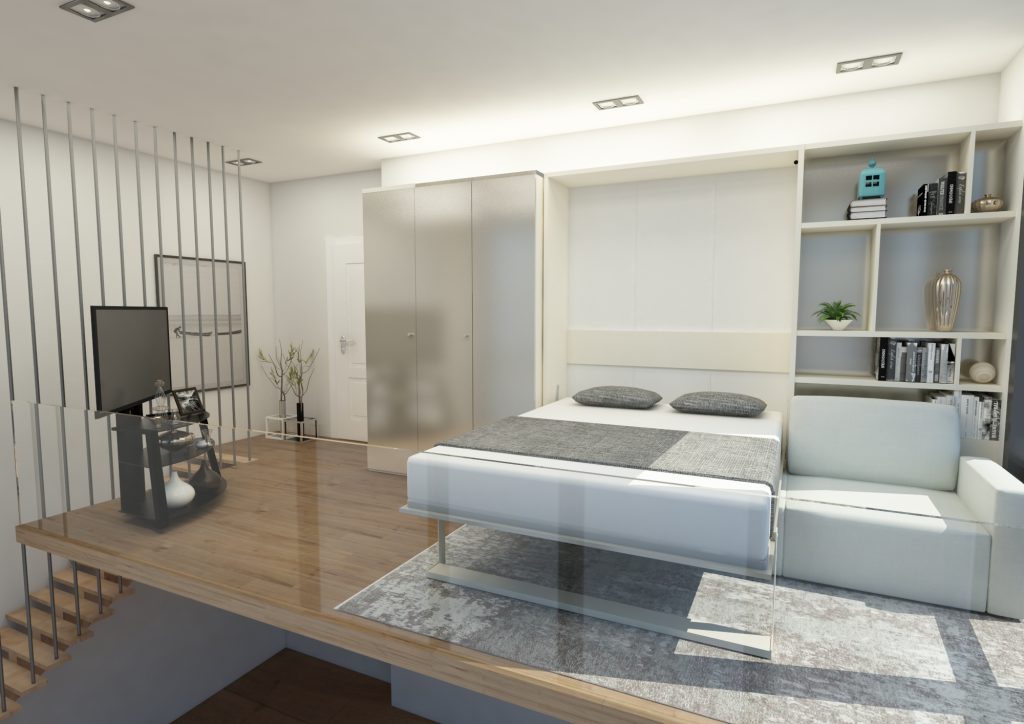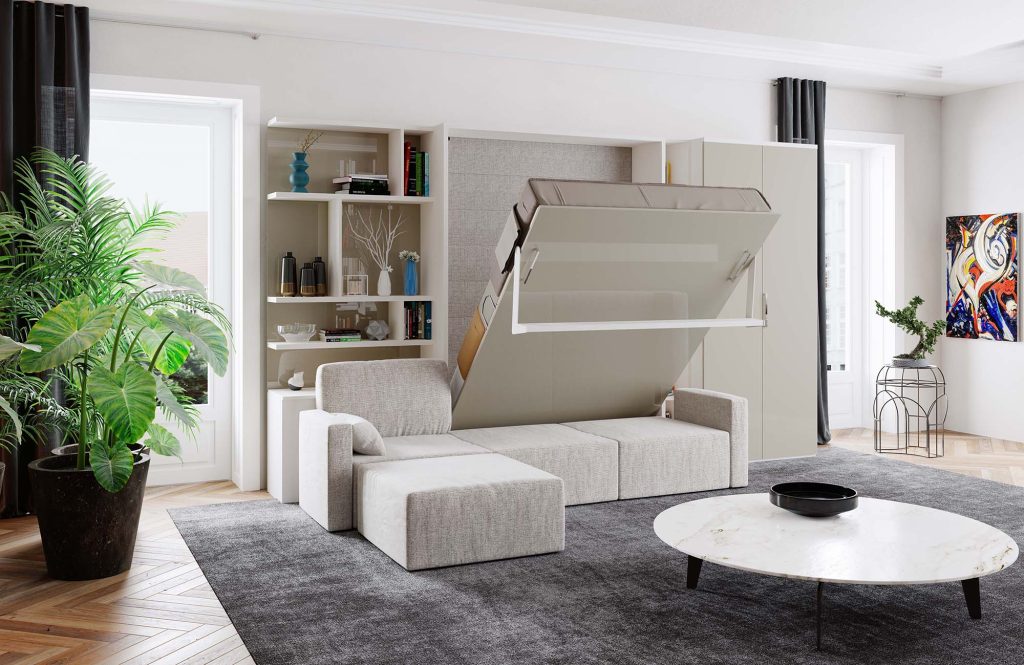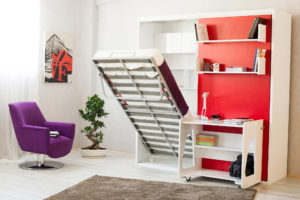Folding Wall Bed
In the ever-evolving landscape of furniture design, the folding bed stands out as a versatile and ingenious solution to the perpetual challenge of optimizing living spaces. These portable sleep solutions seamlessly blend convenience with comfort, offering a transformative experience for both small apartments and expansive homes. Let’s delve into the world of folding beds, exploring their history, design, benefits, and the diverse range of options available today.
A Historical Perspective
The concept of folding beds traces its roots back through the annals of history, with ancient civilizations utilizing various forms of collapsible sleeping arrangements. The Romans, for instance, had folding cots that served both military and domestic purposes. However, it wasn’t until the 19th century that folding beds gained popularity in the mainstream. The Victorians, renowned for their multifunctional furniture, embraced the practicality of folding beds, incorporating them into their homes to address the challenges of limited space.
Design Evolution
Over the years, folding beds have undergone a remarkable transformation in terms of design and functionality. Traditional models featured wooden frames and simple mechanisms, allowing the bed to be neatly folded away when not in use. Today, modern engineering has introduced a plethora of innovative designs and materials, offering a range of folding mechanisms and styles.
Common types of folding beds include rollaway beds, sofa beds, and wall beds. Rollaway beds typically feature a foldable metal frame and casters, allowing easy movement and storage. Sofa beds, on the other hand, combine seating and sleeping functionality, making them ideal for guest rooms or living spaces. Wall beds, also known as Murphy beds, can be vertically stored within a cabinet or against a wall, maximizing floor space during the day.
Benefits of Folding Beds
Space Optimization: The primary advantage of folding beds lies in their ability to optimize space. In urban environments where square footage comes at a premium, a folding wall bed can transform a living room or home office into a bedroom in a matter of seconds.
Guest Accommodations: Folding beds are a game-changer when it comes to hosting guests. Whether it’s an unexpected visitor or a planned sleepover, these portable sleep solutions offer a comfortable and convenient alternative to traditional mattresses.
Multi-Functional Furniture: Many folding wall beds are designed with versatility in mind. Some models include additional features such as storage compartments, making them even more valuable in homes where space is a premium.
Ease of Transportation: Unlike traditional beds, folding beds are often lightweight and equipped with mechanisms that make them easy to transport. This makes them an excellent choice for those who frequently move or wish to have a portable sleeping option.
Choosing the Right Folding Bed
The market offers a wide array of folding bed options, each catering to specific needs and preferences. Factors to consider when selecting a folding bed include size, comfort, ease of folding, and overall durability. Memory foam and innerspring mattresses are popular choices for folding beds, providing a balance of support and comfort.
It’s also essential to consider the mechanism used for folding. Some beds fold in half, while others have a trifold design. Wall beds, although requiring installation, provide an elegant and space-saving solution that seamlessly integrates into the existing decor.
Conclusion
Folding wall beds represent a marriage of practicality and comfort, making them an invaluable addition to modern living. From their historical roots to the contemporary designs available today, these folding wall beds continue to evolve, meeting the challenges posed by shrinking living spaces. Whether you’re looking to maximize space in a studio apartment, create a flexible guest room, or enhance the functionality of a home office, a folding bed offers a stylish and efficient solution, proving that good things do come in small packages.




 SMART UNITS FOR SPACIOUS LIVING
SMART UNITS FOR SPACIOUS LIVING